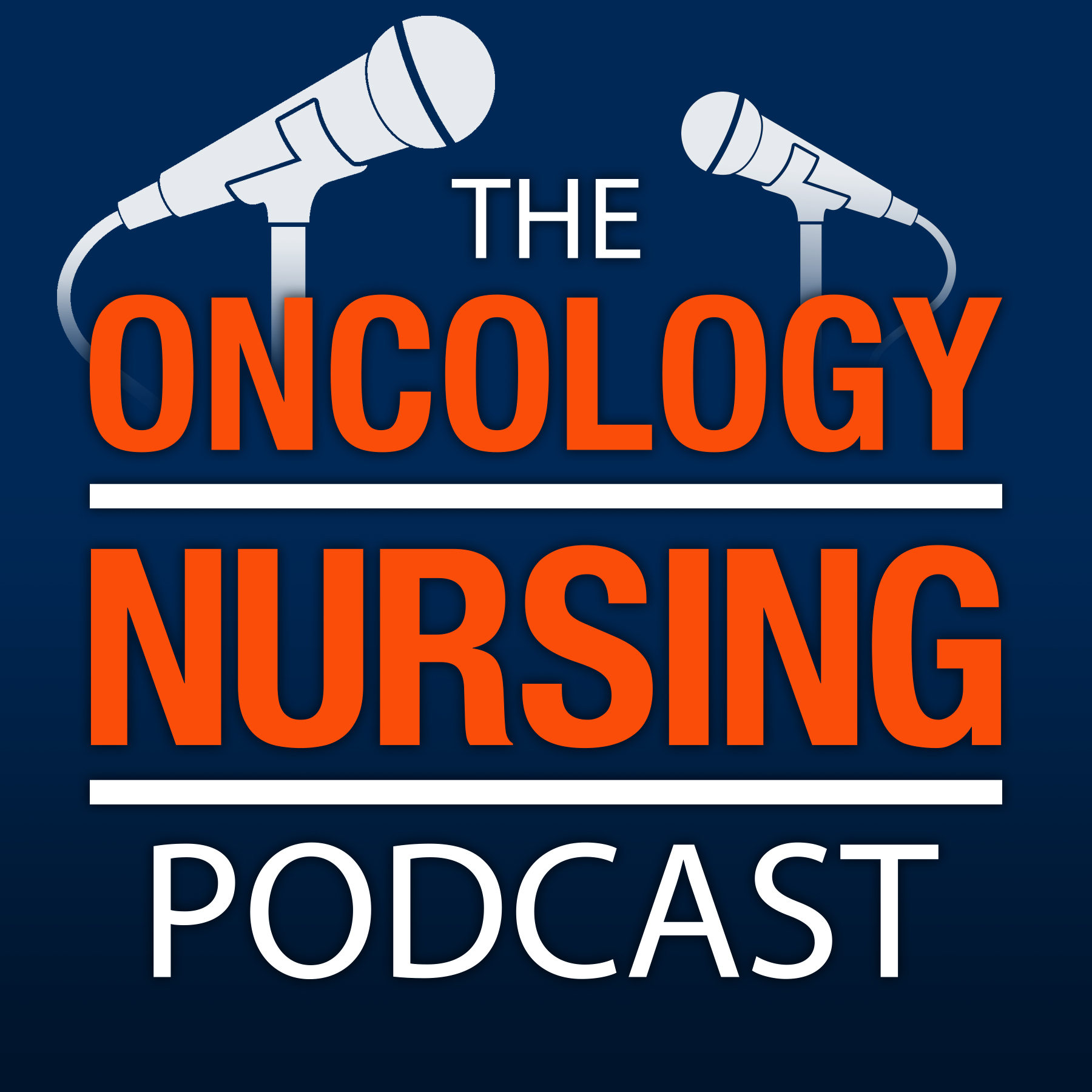
Episode 275: Bispecific Monoclonal Antibodies in Hematologic Cancers and Solid Tumors

The Oncology Nursing Podcast
Shownotes Transcript
“It’s really important to look at where your target is and what the toxicities are associated with hitting that target. Make sure you include that thinking when you’re talking about bispecifics,” ONS member Rowena (Moe) Schwartz, PharmD, BCOP, professor of pharmacy practice at the James L. Winkle College of Pharmacy at the University of Cincinnati in Ohio, told Jaime Weimer, MSN, RN, AGCNS-BS, AOCNS®, manager of oncology nursing practice at ONS, during a discussion about the use of bispecific monoclonal antibodies in hematologic cancers and solid tumors. You can earn free NCPD contact hours after listening to this episode and completing the evaluation linked below. Music Credit: “Fireflies and Stardust)” by Kevin MacLeod Licensed under Creative Commons by Attribution 3.0 Earn 0.5 contact hours of nursing continuing professional development (NCPD), which may be applied to the treatment ILNA category), by listening to the full recording and completing an evaluation at myoutcomes.ons.org) by September 1, 2025. The planners and faculty for this episode have no relevant financial relationships with ineligible companies to disclose. ONS is accredited as a provider of NCPD by the American Nurses Credentialing Center’s Commission on Accreditation. Learning outcome: The learner will report an increase in knowledge related to bispecific monoclonal antibodies in hematologic cancers and solid tumors. Episode Notes Complete this evaluation for free NCPD).
ONS Voice drug reference sheets and FDA announcements about bispecific anticancer therapies)
ONS resources for cytokine release syndrome
Oncology Nursing Podcast Episode 176: Oncologic Emergencies 101: Cytokine Release Syndrome)
Clinical Journal of Oncology Nursing article: STAT: Cytokine Release Syndrome)
Clinical Practice Resource)
Clinical Practice Video)
Huddle Card)™
Cancer article: The BiTE (Bispecific T-Cell Engager) Platform: Development and Future Potential of a Targeted Immuno-Oncology Therapy Across Tumor Types)
Pharmaceutics article: Bispecific Antibodies in Cancer Immunotherapy: A Novel Response to an Old Question)
U.S. Food and Drug Administration label search for package inserts)
To discuss the information in this episode with other oncology nurses, visit the ONS Communities). To find resources for creating an ONS Podcast Club in your chapter or nursing community, visit the ONS Podcast Library). To provide feedback or otherwise reach ONS about the podcast, email [email protected]). Highlights From Today’s Episode “When we talk about bispecifics, we need to really pay attention to both the target on the cancer and the target for T-cell engaging, because that impacts both efficacy but also toxicity.” TS 4:20 “If you really look deep into the clinical trials, often the patients that are receiving these agents in clinical trials have had more than the required three or four lines of treatment. They may have had five or more lines of treatment. So it’s really important to kind of look at where it sits right now, knowing, of course, that that’s an evolving target.” TS 7:13 “One of the things I think can be missed, at times, is the fact that you need to consider the toxicities associated with your target on the cancer cell.” TS 10:06 “In terms of mitigating risk, there’s been two major ways that have been done. One is a step-up dose schedule, and so one of the key things I would say: If you’re not familiar with an agent that you’re going to be administering, it’s really important to review the entire step-up scheme because it's different for each agent. In some cases, patients need to be admitted to the hospital for the entire step-up strategy. Other times it's just the first dose. So it’s really important to look at that.” TS 11:58 “I think we’re going to get to the point where our teaching strategy is going to have to be somewhat tailored to the agent we’re giving. So, how the drug is given during the step-up, what the subsequent cycling is going to be, whether it’s going to be a Q21-day cycle or a weekly dosing administration or every-two-week administration after a certain point. So, I think some understanding of what to expect going forward because these are drugs that are given continually in most situations and so it’s important for people to know what to expect.” TS 14:25 “I think we’re going to see bispecifics that perhaps engage other aspects of the immune system besides CD3. In fact, those are in clinical trials. And I do believe that we’re going to see these more and more developed for cancers beyond the hematologic malignancies. There’s a lot of work being done at looking at targets that we know are helpful targets in certain cancers. And I think we’ll see more drugs approved beyond the myeloma and the lymphoma and the leukemia space.” TS 20:42